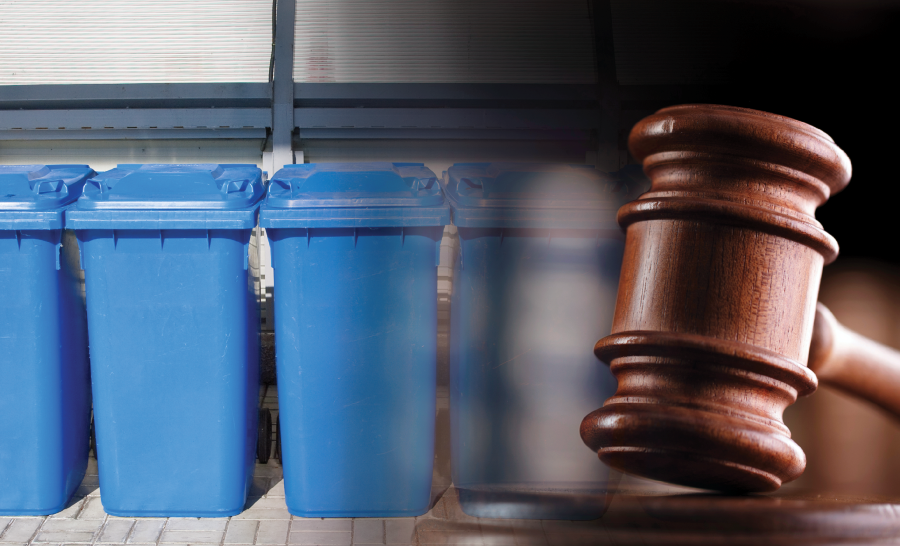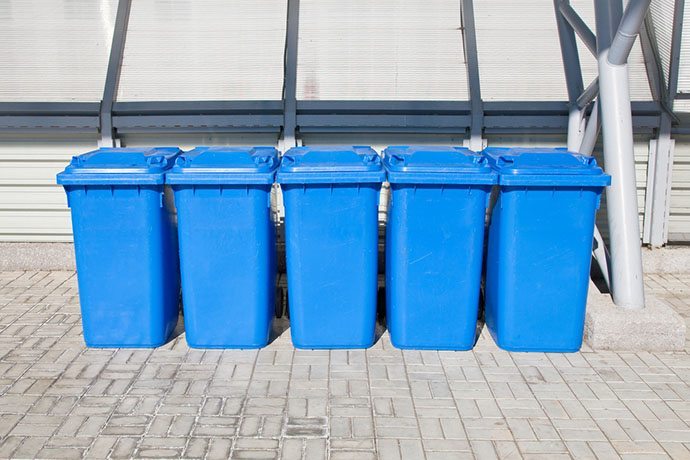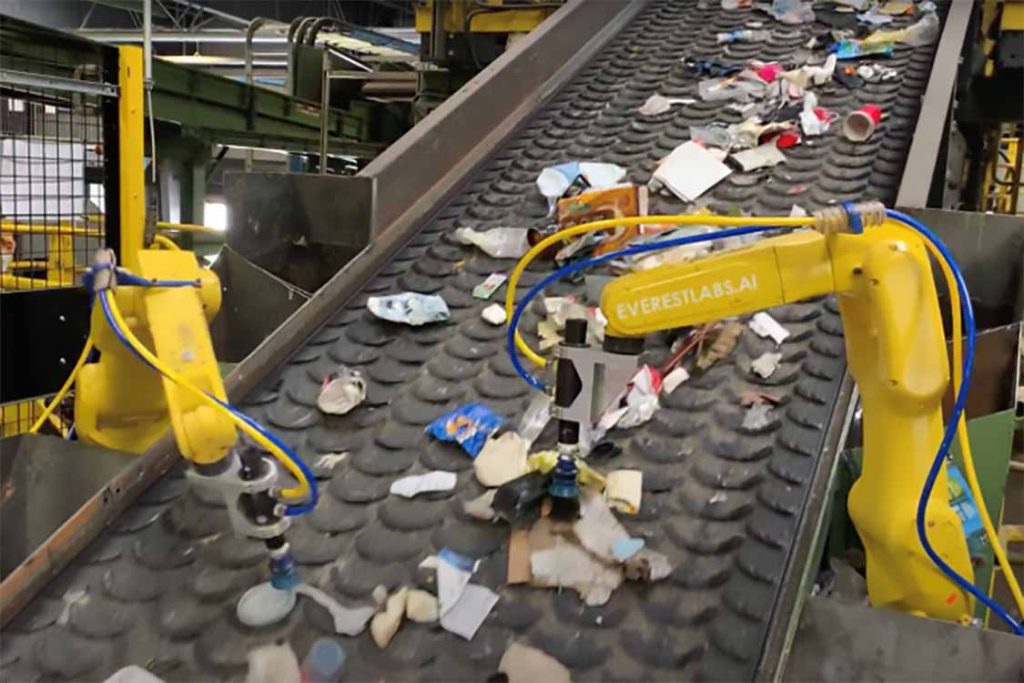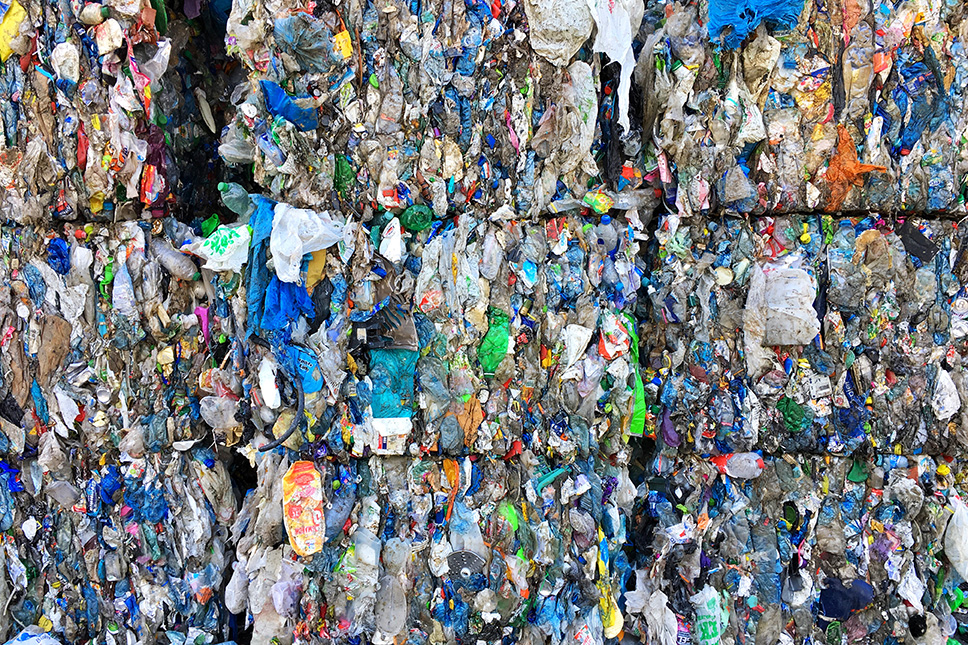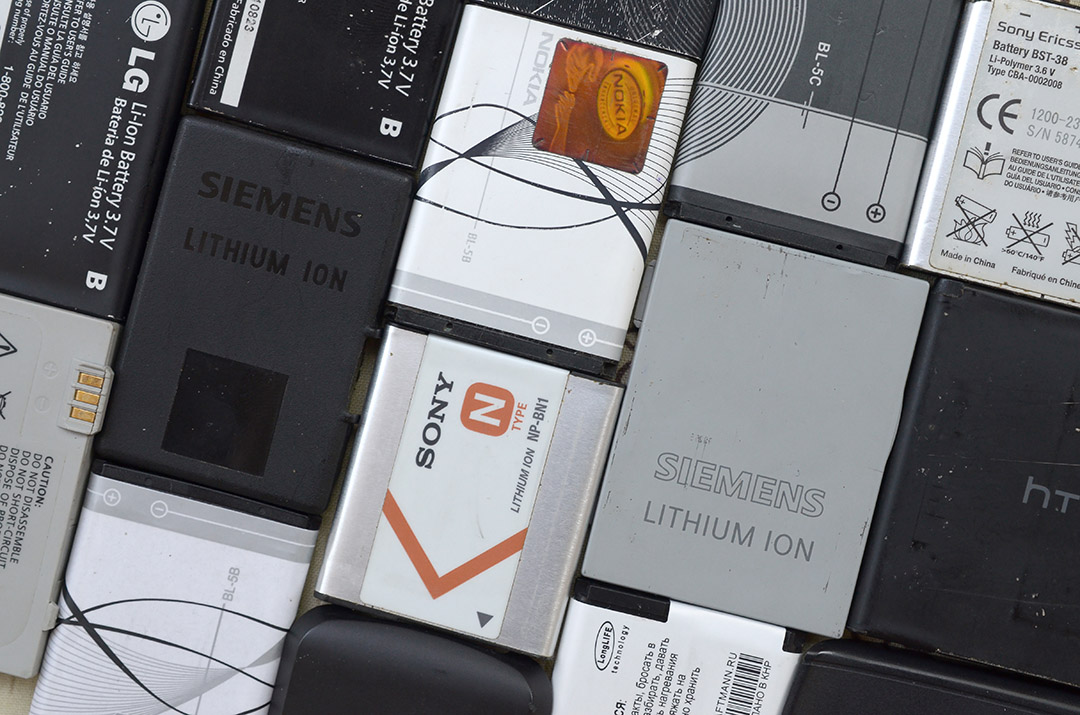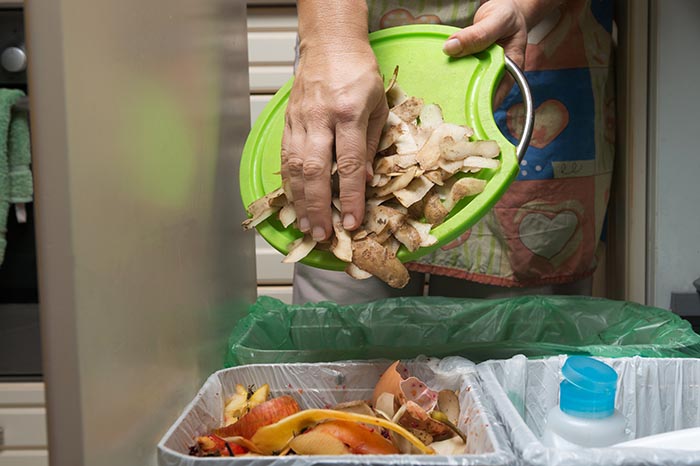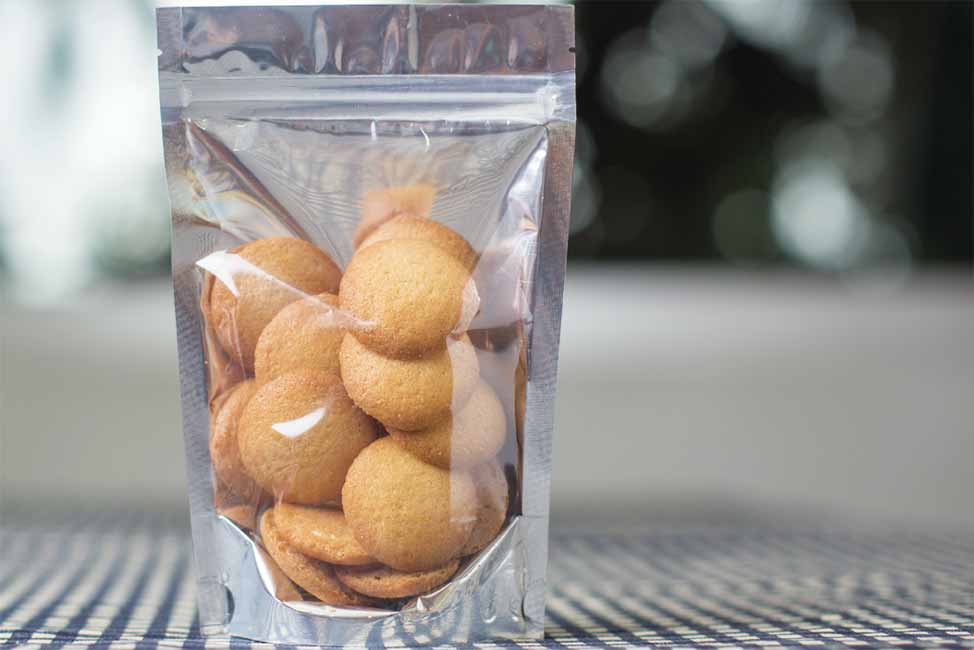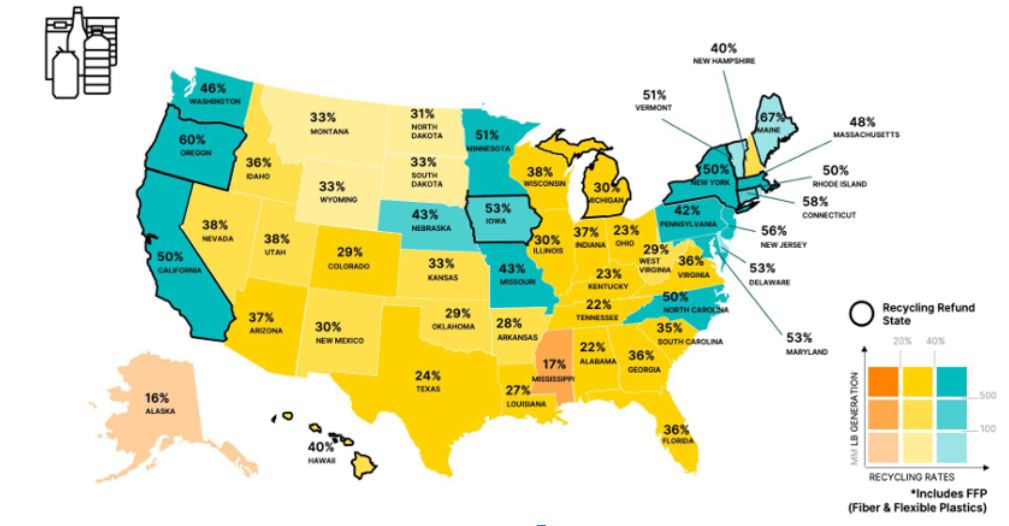
Graphic by Eunomia Consulting
Across the United States, there is growing consideration among advocates and legislators regarding the role of policy in advancing recycling services to ensure equitable access and opportunity to residents while maximizing environmental and economic outcomes. This is exemplified through recent progress in extended producer responsibility policy for packaging. In 2024, nine states – from New York to Tennessee – have introduced legislation for packaging EPR, with the Minnesota governor recently signing an EPR bill, while the four states that have already passed EPR are rapidly moving through implementation phases.



